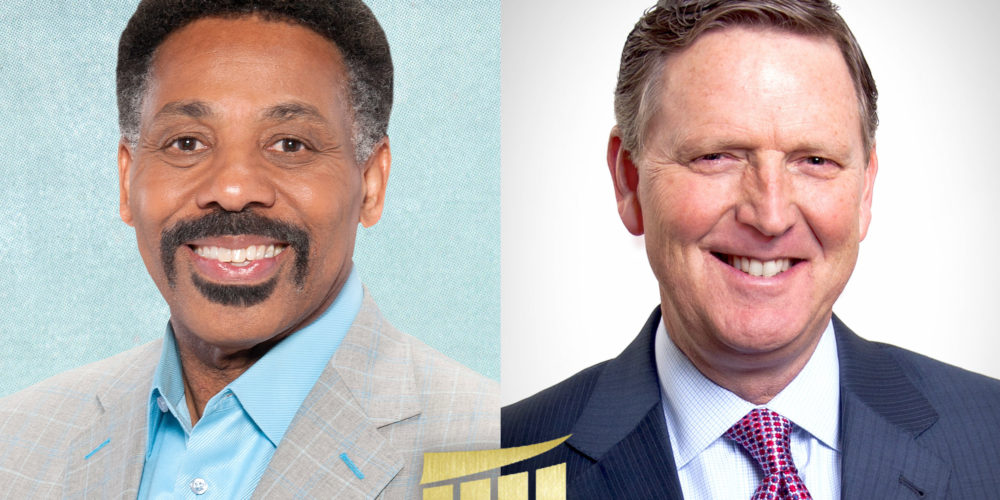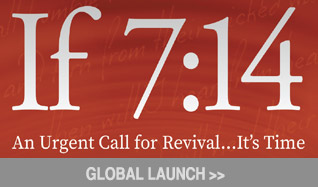On Thursday, June 18, The FAMiLY Leader welcomed leaders of sister state organizations from around the country to a Zoom meeting on racial reconciliation with Dr. Tony Evans of Oak Cliff Bible Fellowship in Dallas, Texas.
Organizational and Church Ambassador Network leaders from several states partnering in TFL’s The Daniel Initiative joined the meeting, representing Arizona, Florida, Iowa, Kansas, Maine, Minnesota, New Hampshire, Ohio, Pennsylvania, Texas, and Wisconsin.
“We are grateful for the opportunity to work with likeminded organizations in states across the country and honored to welcome Dr. Evans to the discussion,” says Bob Vander Plaats, president and CEO of The FAMiLY Leader. “Especially at a time of such division and brokenness, our hope is that Pastor Evans’ perspective can open up new understandings and paths for healing in the Church and in America.”
Watch Evans’ presentation during the meeting below:
During the meeting, Evans described both the COVID crisis and the racial unrest sweeping America as “disturbances” God is using to capture the Church’s attention.
“God is disturbing through a virus and through our strife the natural order of things in order to advance His Kingdom,” Evans said. “The bigger the disturbance, the bigger the message. And the reason why He disturbs the natural order of things is to shake up things on earth to reveal things from heaven.”
And what is God revealing?
“This is a divine moment for an ecclesiological reset,” Evans said.
Beginning with some historical context, Evans argued the racial divide in America today is being driven by the failure of the Church to teach at the outset of the nation God’s declaration that kidnapping and selling a man into slavery is a capital crime (Exodus 21:16).
“The Church failed in the initiation of our nation to address this issue biblically,” Evans said. “That set in motion things that would unveil a Civil War, peonage [the practice of incarcerating people to use them as slave labor, permitted under the 13th Amendment], Jim Crow – all of this endorsed actively or passively by the Church. Theological systems were set up … formal and informal embedding of systems that would keep people of color behind the 8-ball.
“All of this is to say there was a great failure of the Church,” Evans said. “The reason you have a black church and white church today is because the Church was not being the Church.”
But just as the Church bears responsibility for the sin, Evans said, it also holds the keys to healing.
“There are two answers to every question: God’s answer and everybody else’s. And everybody else is wrong when they disagree with Him,” Evans said. “If God is your problem, politics is not your solution. If God is your problem, social action is not your solution.
What is the solution?
For Evans, it’s the Church listening to God’s “divine moment,” correcting its practical theology, and leading the healing by example.
“Since the Church was the theological engine to injustice,” Evans says, “it needs to be the theological solution for it.”
“In the Bible, justice and righteousness … are joined at the hip,” Evans continued, citing Psalms 89:14 and Genesis 18:19. “But while the Anglo church has been emphasizing righteousness, the African-American church has been emphasizing justice. You are splitting a baby that God doesn’t split. … He wants both. Because we have not treated both with same tenacity, the same fire, and with the same insistence in the Church and in society, the society does not have the pattern to follow that should have been established by the Church.”
Evans’ ministry, The Urban Alternative, he relayed, is working to establish just such a pattern, through a three-point plan it’s implemented in several communities, including racial tension hotspot Ferguson, Missouri.
The first point of the plan, Evan said, is to gather the churches of a local community together for a “solemn assembly.”
“There must be a coming together, for the purpose of establishing unity … which invites God’s glory,” Evans said.
From that gathering, The Urban Alternative encourages pastors to stay in contact monthly, for prayer and for discussion, and for corporate impact.
The second point is for the churches of a community to “speak with one voice, so that there is no uncertain sound about the key issues that your communities face – not just a unity of fellowship, but a unity of communication.
“There ought not be any uncertain sound on the issue of racism, on the issue of injustice, on the issue of righteousness,” Evans explained. “We complain about [these issues] in our own circles, but what we don’t do is speak collectively about them. And that ‘one voice’ is critical.”
The third point, Evans said, is to “serve together to impact the environment in our communities. We let the Church be visibly seen as salt and light. Let men see your good works, not hear your good words alone.”
The Urban Alternative has focused on encouraging churches to adopt their public schools – to provide mentoring to students, many of whom come from broken homes.
“But that’s not the only thing you can do,” Evans said. “We’re also going to adopt a police precinct … to influence how community and police relationships go. You get to set the stage. We’re going to provide counseling for their officers. Invite them into what the Church is doing, so the people can see them. … We’re going to bring them into the Church, inviting the community, and we become repairers of the breach.”
And there’s one more secret to unlocking the Church’s power of healing, Evans outlined during the Q&A session: Bring black churches and white churches to work alongside one another.
“Because here’s the key to reconciliation: It happens through service, not seminars. When you serve someone worse off than you, you get to know the one you serve with,” Evans said. “When you join forces to help the hurting, and you do that in a tangible way, the hearing and the openness will go up. … Out of the connectivity and shared experiences, when those emanate from common faith, we can let [reconciliation] grow organically rather than trying to force it, because we are ministering together.”
“If the Church would do this or something like this, it would go a long way to bring healing,” Evans said.
“Dr. Evans has given me all kinds of ideas,” said Greg Baker, vice president of church engagement for The FAMiLY Leader. “The church networks these state leaders represent are all about the transformative power of building relationships between pastors, community leaders, and elected officials – and the common goal they share of bringing blessing and healing to hurting people. What better place to start the healing than with the Church being tangible salt and light?”
“This does just scream ‘The Daniel Initiative,'” agreed Vander Plaats. “A model of building relationships between local pastors and local officials, impacting their local communities, spreading state by state – it’s how you change a nation!”
The leaders on the call with Evans participate in The FAMiLY Leader’s The Daniel Initiative, which mentors independent state organizations in a strategy of inspiring the Church to engage with government for the advance of God’s Kingdom. Part of that strategy includes developing Church Ambassador Networks, which bring ministers of God’s Church (pastors) into non-partisan, discipleship relationships with ministers of God’s government (elected officials). Together, The Daniel Initiative organizations represent networks of thousands of churches across a dozen states in the U.S., with the goal of seeing culture-transforming Church Ambassador Networks in all 50 U.S. states and beyond.



